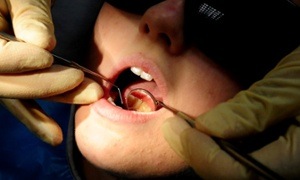
A cluster of makeshift dental clinics allegedly being run by people without the appropriate permission has been uncovered in Victoria, with Australia’s medical regulator warning an unknown number of people may have been exposed to blood-borne diseases.
It follows the revelation by the state health department earlier this month that one man, Muhammet Velipasaoglu, had been charged for pretending to be a dentist and treating patients from a residential property in the north Melbourne suburb of Meadow Heights. He will face Melbourne magistrates court on 14 August.
Since then the Australian Health Practitioner Regulation Agency (AHPRA) has identified three more premises unrelated to Velipasaoglu’s case and located in the northern suburbs of Meadow Heights and Roxburgh Park where there was strong evidence that dental treatment had been provided by unregistered people, AHPRA CEO Martin Fletcher said on Monday.
“We are concerned based on the search warrants we have executed there are issues of poor hygiene and substandard care at these premises,” Fletcher said.
“We are concerned that there appears to be a cluster of such premises, and that’s why today we are asking people to come forward.”
The three most recent cases came to light after a tipoff from a registered dentist who did follow-up work on patients who had received treatment at one of the unregistered facilities, Fletcher said.
Victoria’s acting chief health officer, Dr Finn Romanes, said it was important for anyone treated by an unregistered person to receive follow-up treatment by a registered dentist, and to also be tested for blood-borne diseases by their doctor.
“The evidence we’ve seen strongly supports there were poor infection control procedures at these premises,” Romanes said.
“A certain proportion of the public has blood-borne viruses – hepatitis B, hepatitis C, and HIV. Really, anything but the absolute best infection control procedures in place creates a risk.”
Authorities were particularly concerned about patients who had attended Velipasaoglu’s “clinic”, he said, because he says that there is evidence that infection control was particularly poor there. More than 85 people had come forward after that case came to light earlier this month, he said.
“All it takes is a needle contaminated with one person’s blood to be given to the next person,” Romanes said.
“Some of these infections are lifelong and they can be passed on from person to person, so there is also a risk to family members. So yes, it’s serious.”
Velipasaoglu had been treating patients since 2003, but it was too early to say how long the additional premises identified in the past 12 days had been operating for, Romanes said. Charges were expected to be laid against those operators in the coming days, he said.
While Velipasaoglu had trained as a dentist in Turkey but never registered to practise in Australia, AHPRA said it was too early to say what qualifications, if any, the most recently uncovered people had.
Anyone who received treatment at the clinics was being urged to call the health department on 1800 356 061, Romanes said.
“No one is in trouble [if they were treated by these] practitioners, we are just concerned for their health,” he said.
Patients can check that their dentist was registered by visiting the AHPRA website.
